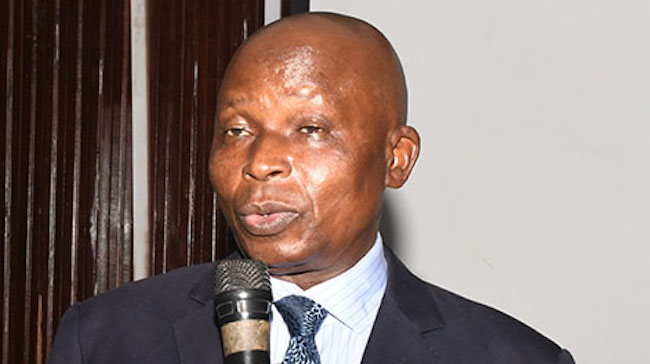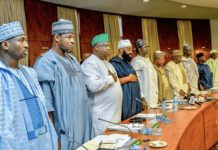🌿 Ruzu Non-Alcoholic Herbal Bitters
Ruzu Non-Alcoholic Herbal Bitters is a natural health supplement specially formulated to:
- ✅ Promote general wellness
- ✅ Detoxify the body
- ✅ Support the treatment of various ailments
Made from a powerful blend of 100% organic and medicinal herbs, Ruzu is completely alcohol-free, making it ideal for:
- 👪 All age groups
- 🌱 Health-conscious individuals
- 🌿 Anyone seeking non-alcoholic herbal remedies
Whether you're looking to boost your vitality, cleanse your system, or support healing the natural way, Ruzu Bitters offers a trusted herbal solution.
In a move that could significantly reshape the Nigerian political landscape, the Federal Government has filed a lawsuit against the 36 state governors at the Supreme Court.
The suit sought to enforce full autonomy for the country’s 774 local government areas.
The crux of the issue lies in the current power imbalance between state and local governments.
The federal government argued that state governors wield excessive control, hindering efficient governance at the local level.
This control, according to the federal government manifests in two key areas: finances and leadership.
The office of the Attorney-General of the Federation filed the suit in order to better guarantee the independence of the local governments.
In the 13-paragragh affidavit in support of the originating summons deposed to by one Kelechi Ohaeri from the Federal Ministry of Justice, the AGF instituted the suit against the governors under the original jurisdiction of the Supreme Court on behalf of the FG.
The suit marked: SC/CV/343/2024 urged the court to issue an order prohibiting state governors from embarking on unilateral, arbitrary and unlawful dissolution of democratically elected local government officials.
The summon read: “That the governors represent the component states of the Federation with Executive Governors who have also sworn to uphold the Constitution and to at all times, give effects to the constitution and that the constitution, being the supreme law, has binding force all over the federation of Nigeria.
READ ALSO:Reps summon Umahi, Edun, Fagbemi to explain procurement process on Lagos-Calabar Highway
“That the constitution of Nigeria recognises federal, states and local governments as three tiers of government and that the three recognised tiers of government draw funds for their operation and functioning from the Federation Account created by the Constitution.
“That by the provisions of the constitution, there must be a democratically elected local government system and that the constitution has not made provisions for any other systems of governance at the local government level other than the democratically elected local government system.
“In the face of the clear provisions of the constitution, the governors have failed and refused to put in place a democratically elected local government system even where no state of emergency has been declared to warrant the suspension of democratic institutions in the state,” adding that the “failure of the governors to put democratically elected local government system in place is a deliberate subversion of the 1999 Constitution which they and the President have sworn to uphold.
“That all efforts to make the governors comply with the dictates of the 1999 Constitution in terms of putting in place, a democratically elected local government system, has not yielded any result and that to continue to disburse funds from the Federation Account to governors for non existing democratically elected local government is to undermine the sanctity of the 1999 Constitution.”
The plaintiff also prayed the Supreme Court to make an order permitting the funds standing in the credits of local governments to be directly channelled to them from the Federation Account in line with the provisions of the Constitution as against the alleged unlawful joint accounts created by governor.
This lawsuit sets the stage for a major legal showdown with far-reaching implications. If the Supreme Court rules in favor of the federal government, it could usher in an era of greater autonomy for LGAs. This could empower local communities to manage their resources more effectively and address local challenges directly. However, concerns remain about the potential for inexperience or mismanagement at the local level.
It has the potential to significantly alter the balance of power within the country’s federal structure.
If you like what we do, and are ready to uphold solutions journalism, kindly donate to the Ripples Nigeria cause.
















